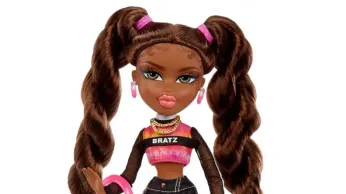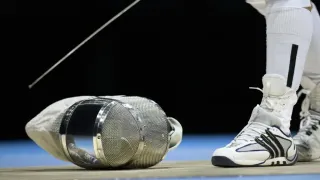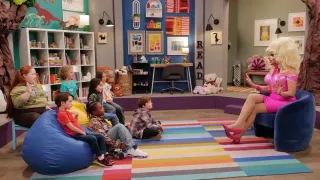
4 hours ago
Bratz Issues Public Apology After Excluding Black Doll Sasha from Hello Kitty Collaboration
READ TIME: 3 MIN.
Bratz, the iconic doll brand known for its diverse core characters, recently found itself at the center of controversy after fans noticed that Sasha, the only Black doll among its original four, was missing from its new collaboration with Hello Kitty. The omission, which became apparent with the collection’s launch on September 30, 2025, quickly drew intense criticism and sparked conversations about racial representation in the toy industry .
The Bratz x Hello Kitty collector collection, developed in partnership with Sanrio to celebrate Hello Kitty’s upcoming birthday, initially featured three dolls—Chloe, Yasmin, and Jade—leaving Sasha out of both the product lineup and promotional materials. This decision struck a nerve with longtime fans, many of whom took to social media to voice their disappointment and demand accountability from both Bratz and its parent company, MGA Entertainment .
Within hours of the launch, hundreds of fans filled the comments sections on Bratz’s official Instagram and other social media platforms with messages expressing frustration and concern. Many pointed out that Sasha’s absence was not only glaring but also emblematic of a pattern in which Black and other marginalized characters are sidelined or erased in major collaborations. Comments ranged from “No Sasha is kinda sus” to “The 4 ogs should always be in it together,” with others explicitly labeling the exclusion as racially motivated or “shady” .
For many, the issue was especially disappointing given Bratz’s reputation for championing diversity since its 2001 debut. The original lineup—comprised of Chloe, Yasmin, Jade, and Sasha—was celebrated for representing a range of racial and cultural backgrounds, offering children a stark alternative to the more homogenous world of mainstream fashion dolls .
In the wake of mounting backlash, Bratz released a formal apology via its social media channels, directly addressing the exclusion and outlining steps to rectify the oversight. In a statement, the company wrote: “We’ve heard your feedback about Sasha not being part of the Bratz x Hello Kitty collab. Sasha is forever a core Bratz girl. The lineup for this release was determined on the Bratz side. Our friends at Sanrio have been incredible partners throughout, and together we’re thrilled to share that Sasha is joining the collaboration — more info to come soon” .
The statement further acknowledged the impact of fan advocacy: “Your passion made it clear how much she means to you all, and we are excited to give her the spotlight she deserves. Sasha has headlined some of our biggest collaborations, and she will continue to shine in upcoming projects. Thank you for keeping the Bratz spirit alive” .
Jill Koch, Senior Vice President of Brand and Marketing at Sanrio, also weighed in, reiterating the collaboration’s intent to celebrate individuality and self-expression: “At its core, this collaboration is about celebrating individuality and the joy of expressing yourself in your own unique way. Hello Kitty has always inspired friendship, kindness, and creativity, while Bratz encourages bold style and confidence. Together, they bring a playful energy that invites fans of all ages to embrace their true selves and share the fun of fashion and friendship”
The initial exclusion of Sasha reignited ongoing discussions about the importance of authentic representation in children’s media and consumer products. For Black children and those from other marginalized communities, seeing themselves reflected in mainstream toys is not simply a matter of aesthetics but one of visibility, validation, and self-esteem. The backlash also demonstrated how consumer voices—particularly those from communities often overlooked by major brands—can play a decisive role in shaping corporate decisions.
While some fans welcomed Bratz’s apology and the forthcoming inclusion of Sasha, others noted that the correction came only after public outcry, and called for greater accountability to ensure that diversity and inclusion are not treated as afterthoughts. Comments such as “admitting Sasha is an afterthought to y’all gives me the ick” and “This doesn’t suffice” captured the continued skepticism among segments of the fan base .






